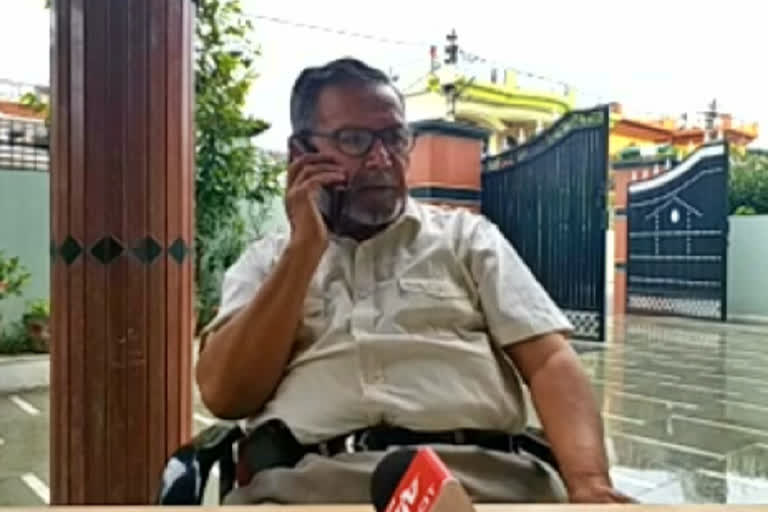Hyderabad: India and Nepal seemed to be headed for a diplomatic showdown with Nepalese PM KP Sharma Oli declaring that the Kalapani area under India’s administrative control in Uttarakhand's Pithoragarh district belonged to Nepal.
This followed Oli government's endorsement of a new political map of Nepal which showed Kalapani, Limpiyadhura and Lipulekh as Nepal's territory.
However, the Nepal government had to defer its plan to move the constitutional amendment in Parliament to update the map after the main opposition Nepali Congress party sought time for more discussions on the issue. India, on its part, outrightly rejected the new map.
In an exclusive interview with ETV Bharat's Regional Editor Braj Mohan, former officer of Uttar Pradesh Board of Revenue, Surendra Singh Pangti, who is well versed with the region, spoke at length on the territorial disputes between India and Nepal.
Read: Amid India-Nepal friction, a ground report from Kalapani region
Pangti blamed the current Communist government in Nepal for giving rise to a rivalry between the two neighbours, who had perpetually been at good terms with each other. He claimed that there existed a political deadlock between the current government and its predecessor in Nepal and the issue has been raised to divert attention.
"The current government in Nepal being on good terms with China is also a reason for the recent fallout. The fact that Nepal is doing all this at the behest of China, cannot be denied," he said.
Speaking on Treaty of Sugauli, Pangti said that the agreement established the boundary line of Nepal which was signed on December 2, 1815, between the British East India Company and King of Nepal following the Anglo-Nepalese war. Following the treaty, a cease-fire was announced between the British and the King of Nepal, he added.
Read: Nepal postpones scheduled discussion on constitutional amendment to update map
On being asked about the significance Lipulekh holds for India, Pagti said that the pass is the easiest to go through in the entire region.
"Even Nepal has built a very long road from the Tibet side. Before the current standoff, China had interfered in Doklam and Ladakh, so it is imperative for China to intervene here too. Hence, the Lipulekh region becomes all the more important for India," he said.
Adding on, Pangti said that even Uttarakhand's Barahoti region is claimed by China, and hence it is extremely important for India to strengthen all the passes in the region in terms of security.
"In the same context, motorways were also built in Lipulekh. Besides, this route is also to be used for Kailash Mansarovar Yatra, which has been welcomed by the Chinese government," he added.
Speaking about the Kailash Mansarovar Yatra, Pangti said that the journey used to be through multiple passes in the western part of Lipulekh.
Read: India-Nepal diplomatic row and China's shadow
"The maximum number of tourists go through Lipulekh. Earlier, tourists used to cover the distance on foot, but now they will get relief as the road has been constructed. The Chinese government has also built a road to Lipulekh and its nearby passes for the convenience of travellers," he added.
Pangti also claimed that due to political turmoil in the country, the Nepal government is raising this issue after almost 200 years.
It is pertinent to mention here that the Oli government had planned to table the constitutional amendment in Parliament on May 26 to give legal backing to the new political map that shows Kalapani, Lipulekh and Limpiyadhura as part of the country's territory.
Also Read: Government documents nullify Nepal's claim on Kalapani and Lipulek



